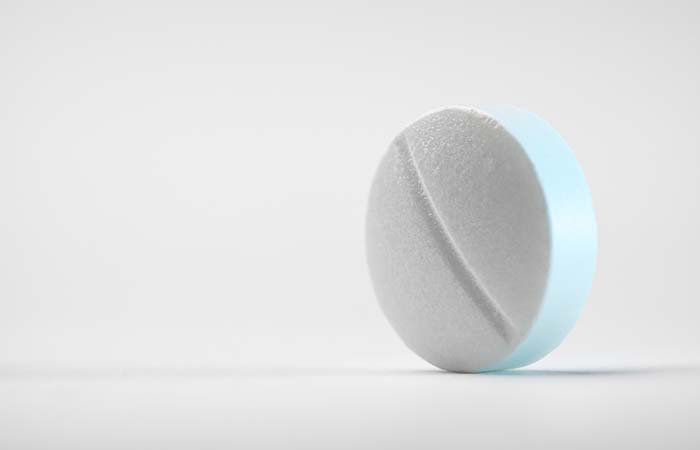Does Modafinil Help or Harm Patients with Dementia?
Modafinil, a wakefulness-promoting agent originally approved for narcolepsy and shift work sleep disorder, has attracted attention for its potential off-label uses in cognitive and behavioral symptoms associated with dementia. Dementia patients often suffer from excessive daytime sleepiness, apathy, and cognitive decline, which significantly impact their quality of life and caregiver burden. While some studies suggest modafinil may improve sleep disturbances and motivation in dementia, others report risks such as exacerbation of psychosis, particularly in dementia subtypes like Dementia with Lewy Bodies (DLB).
>> Looking to Buy Modafinil Online? Get it here for less than $1 per pill!
How Modafinil Works and Its Potential in Dementia
Modafinil promotes wakefulness primarily by modulating subcortical structures such as the hypothalamus and thalamus and enhancing dopaminergic transmission with relatively fewer stimulant-like effects (StatPearls, 2025). This unique mechanism may address some neuropsychiatric symptoms of dementia, including excessive daytime sleepiness (EDS) and apathy, which are often linked to dopamine deficits.
Studies in healthy elderly volunteers showed that modafinil alters brain connectivity in the cortex and cerebellum, suggesting potential cognitive-enhancing effects relevant to dementia (Punzi et al., 2017). Additionally, clinical trials in patients with remitted depression demonstrated improvements in episodic and working memory, which may translate to cognitive benefits in dementia (Kaser et al., 2017).
Clinical Evidence: Benefits in Dementia Symptoms
Improving Sleep and Daytime Wakefulness
Sleep disturbances and fragmented circadian rhythms are prevalent in dementia and contribute to caregiver burden and earlier institutionalization. An open-label study of eight dementia patients showed modafinil improved daytime activity and reduced daytime sleepiness, as measured by actigraphy and the Epworth Sleepiness Scale (Howcroft & Jones, 2005). Patients tolerated modafinil well at doses up to 200 mg/day, although this was a small preliminary study.
Addressing Apathy in Dementia
Apathy, characterized by lack of motivation and initiative, affects up to 90% of dementia patients and correlates with faster cognitive decline. Traditional antidepressants often fail to relieve apathy and can even worsen it. A 2007 case report described successful treatment of apathy in a 78-year-old dementia patient using modafinil, with significant improvement after titration to 200 mg/day (Padala, Burke & Bhatia, 2007). This suggests modafinil’s dopaminergic activity may target apathy effectively.
Cognitive Enhancement Potential
While direct evidence in dementia is limited, research in related populations provides encouraging insights. In remitted depression, a single 200 mg dose of modafinil improved episodic and working memory (Kaser et al., 2017). Similarly, healthy elderly subjects showed modafinil-induced changes in brain connectivity linked to cognitive networks (Punzi et al., 2017). These findings support further investigation into cognitive benefits for dementia patients.
Risks and Safety Concerns
Despite promising benefits, modafinil use in dementia is not without risks. Particularly in Dementia with Lewy Bodies (DLB), modafinil has been reported to exacerbate hallucinations, agitation, and psychosis. Two case reports described worsening psychotic symptoms following modafinil initiation, which resolved upon discontinuation (Prado et al., 2012). This underscores the need for cautious prescribing and close monitoring in dementia subtypes prone to neuropsychiatric complications.
The FDA label recommends lower starting doses and vigilant monitoring of elderly patients due to increased sensitivity to side effects such as anxiety, insomnia, and cardiovascular events (FDA, 2015).
Conclusion
Modafinil shows potential to help manage some challenging symptoms of dementia, including excessive daytime sleepiness and apathy, with preliminary evidence of cognitive enhancement benefits. However, risks such as exacerbation of psychosis, especially in Dementia with Lewy Bodies, highlight the importance of individualized risk-benefit assessment and careful clinical monitoring. Large-scale, controlled clinical trials are needed to establish definitive safety and efficacy profiles for modafinil in diverse dementia populations.
References
- U.S. Food and Drug Administration. (2015). PROVIGIL® (modafinil) tablets, for oral use, C-IV [prescribing information]. U.S. Department of Health and Human Services. https://www.accessdata.fda.gov/drugsatfda_docs/label/2015/020717s037s038lbl.pdf
- Greenblatt, K., & Adams, N. (2023). Modafinil. In StatPearls [Internet]. StatPearls Publishing. https://www.ncbi.nlm.nih.gov/books/NBK531476/
- Prado, E., Paholpak, P., Ngo, M., Porter, V., Apostolova, L. G., Marrocos, R., & Ringman, J. M. (2012). Agitation and psychosis associated with dementia with Lewy bodies exacerbated by modafinil use. American Journal of Alzheimer’s Disease & Other Dementias, 27(7), 468–473. https://doi.org/10.1177/1533317512456450
- Punzi, M., Gili, T., Petrosini, L., Caltagirone, C., Spalletta, G., & Sensi, S. L. (2017). Modafinil-induced changes in functional connectivity in the cortex and cerebellum of healthy elderly subjects. Frontiers in Aging Neuroscience, 9, 85. https://doi.org/10.3389/fnagi.2017.00085
- Padala, P. R., Burke, W. J., & Bhatia, S. C. (2007). Modafinil therapy for apathy in an elderly patient. Annals of Pharmacotherapy, 41(2), 346–349. https://doi.org/10.1345/aph.1H302
- Howcroft, D. J., & Jones, R. W. (2005). Does modafinil have the potential to improve disrupted sleep patterns in patients with dementia? International Journal of Geriatric Psychiatry, 20(5), 492–495. https://doi.org/10.1002/gps.1305
- Kaser, M., Deakin, J. B., Michael, A., Zapata, C., Bansal, R., Ryan, D., Cormack, F., Rowe, J. B., & Sahakian, B. J. (2017). Modafinil improves episodic memory and working memory cognition in patients with remitted depression: A double-blind, randomized, placebo-controlled study. Biological Psychiatry: Cognitive Neuroscience and Neuroimaging, 2(2), 115–122. https://doi.org/10.1016/j.bpsc.2016.11.009








